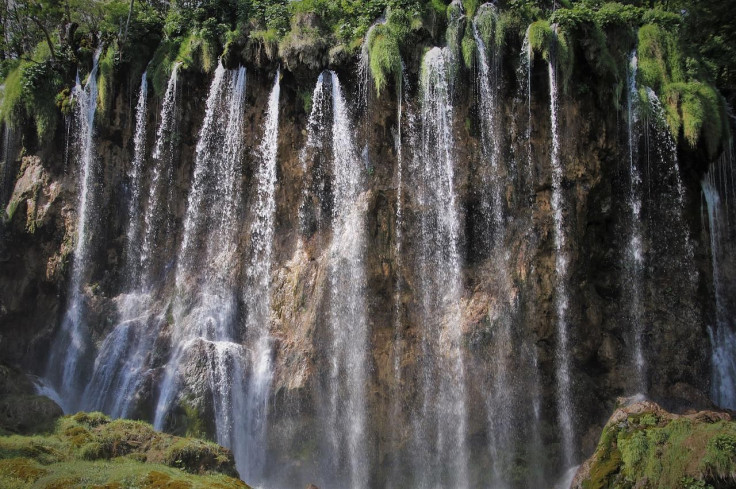'Orchid Of The Falls' Discovered In 2018 Now Declared Extinct In Wild
KEY POINTS
- 'Orchid of the falls' plants aren't orchids but are restricted to waterfalls
- Researchers described new species, one of which is already believed to be extinct
- A hydroelectric project flooded its 'only known geographic location,' likely causing its extinction
A particularly rare "orchid of the falls," which was only discovered in 2018, has been declared to be extinct in the wild.
The Saxicolella genus belongs to the Podostemaceae or "orchids of the falls" family that contains about 300 species that mainly occur in the tropics, Royal Botanic Gardens, Kew noted in a news release. These plants are not really orchids, but they exist on rocks in waterfalls that have fast-moving, aerated waters. Naturalist David Attenborough referred to them as "orchids of the falls" in a BBC documentary earlier this year.
A new paper published in Kew Bulletin this week described a few new species, including Saxicolella deniseae or "Denise's Saxicolella." This was named after one of the study authors, botanist Denise Molmou, who collected the only known specimen of the species in 2018. Unfortunately, however, the researchers also declared the species to be extinct in the wild.
The plant is said to be endemic only to one location in Konkouré River in the Republic of Guinea, West Africa. When one of the study authors, Kew botanist Martin Cheek, looked at the coordinates of the plant's location using Google Earth, he found that it was already submerged in reservoir waters due to a hydroelectric dam that opened in 2017.
In fact, even by late 2018, the reservoir was "already filled nearly up to the junction," the researchers said. This likely led to the plant's "only known global population" going extinct, while other such projects may also threaten the other species.
"The major threats, above all, are hydro-electric projects," the researchers wrote. "Saxicolella deniseae may already be globally extinct, and two of the four known locations of S. angola appear lost, S. sp. A of Gabon is threatened at at least one of its three locations, while S. futa is threatened at all three locations."
Rare 'orchid of the falls' #species declared extinct in the wild @KewGardens https://t.co/iuQzk4ImAD https://t.co/12DH9DTWAV
— Phys.org (@physorg_com) June 1, 2022
"(W)e know that many plant species have become extinct recently, but this case shows how unexpectedly and sudden extinction can be," Cheek said, as per the news release. "(I)t looks pretty certain this species has become extinct. This likely happened last year, unknown to us until just now when we checked to see how close the reservoir had advanced towards the site."
Unfortunately, the researchers weren't able to collect seeds to help preserve the S. deniseae as they were hindered by travel restrictions due to COVID-19 and even a military coup in 2021, according to Royal Botanic Gardens, Kew. While there is a chance that it could still be alive somewhere else, researchers said the chances aren't that great, particularly with hydro projects flooding the area.
"(W)hile it is a great honor to have a species I discovered in the wild named after me, it is really sad that it is almost certainly extinct," Molmou said. "I will look to see if we can find it in other waterfalls, even though the chance of finding it alive is not very high."

© Copyright IBTimes 2025. All rights reserved.






















